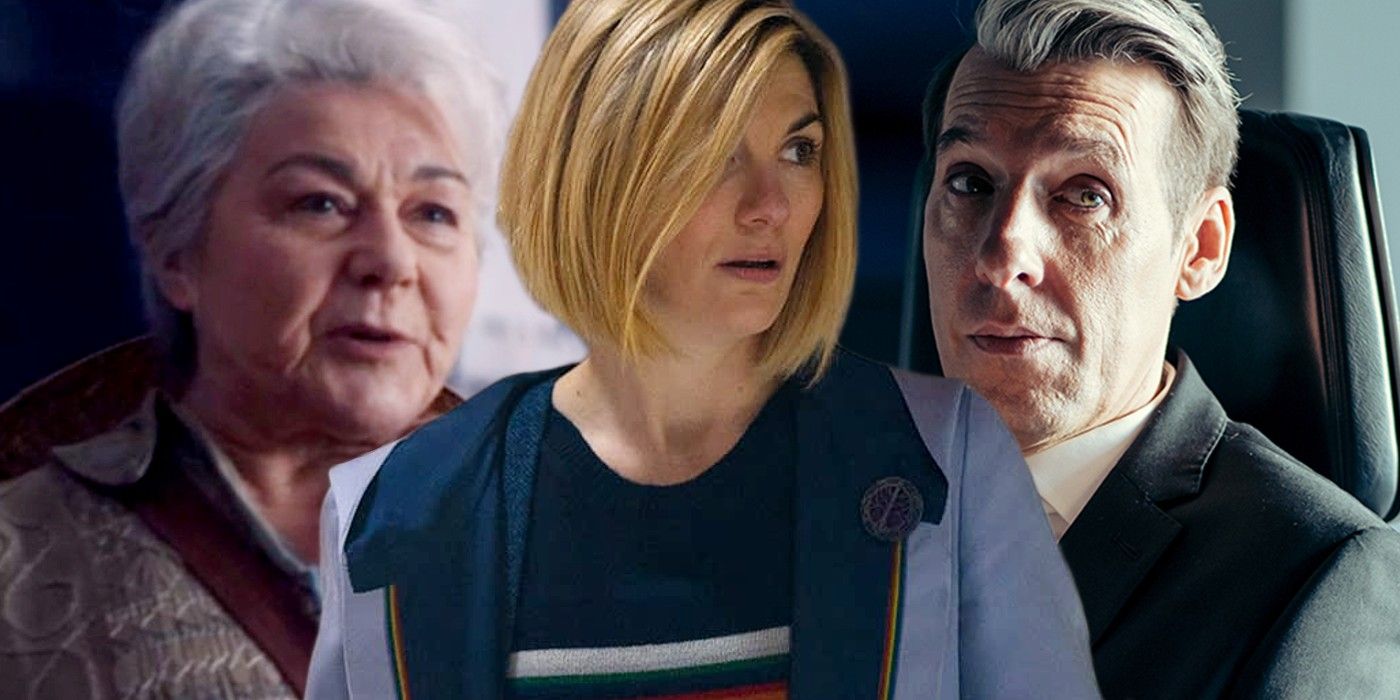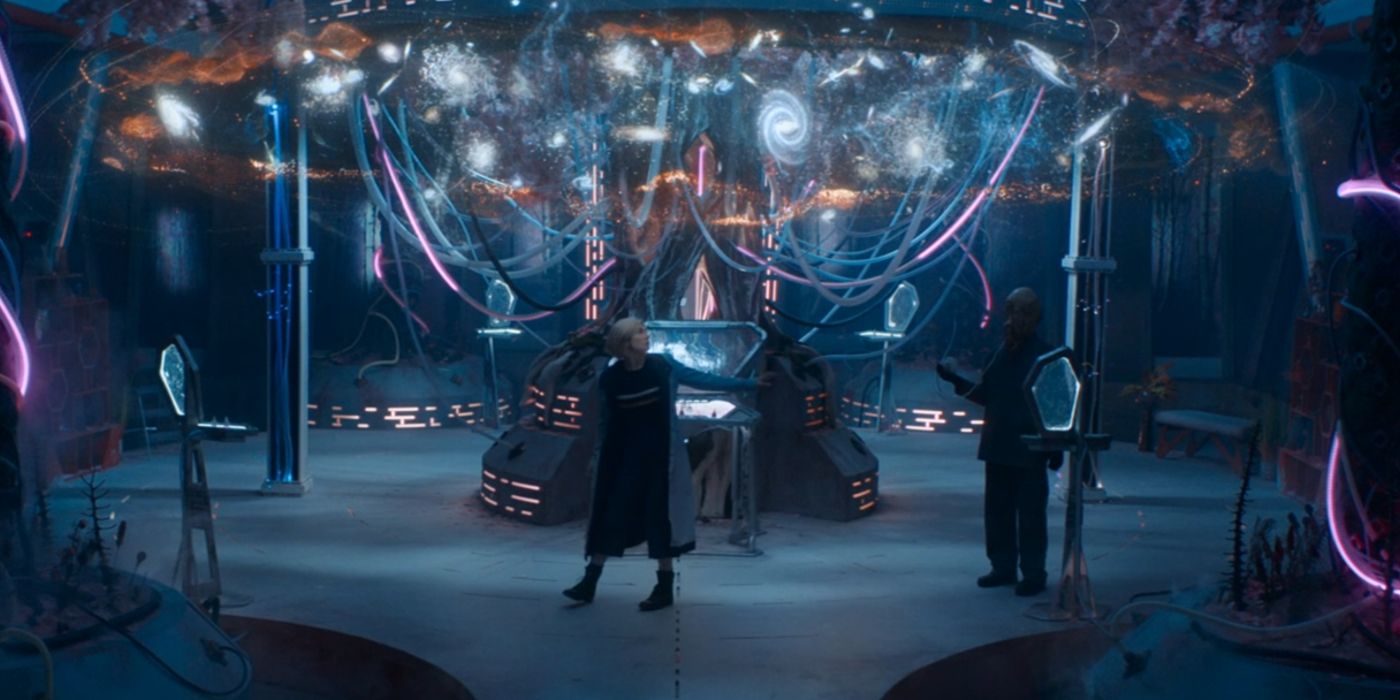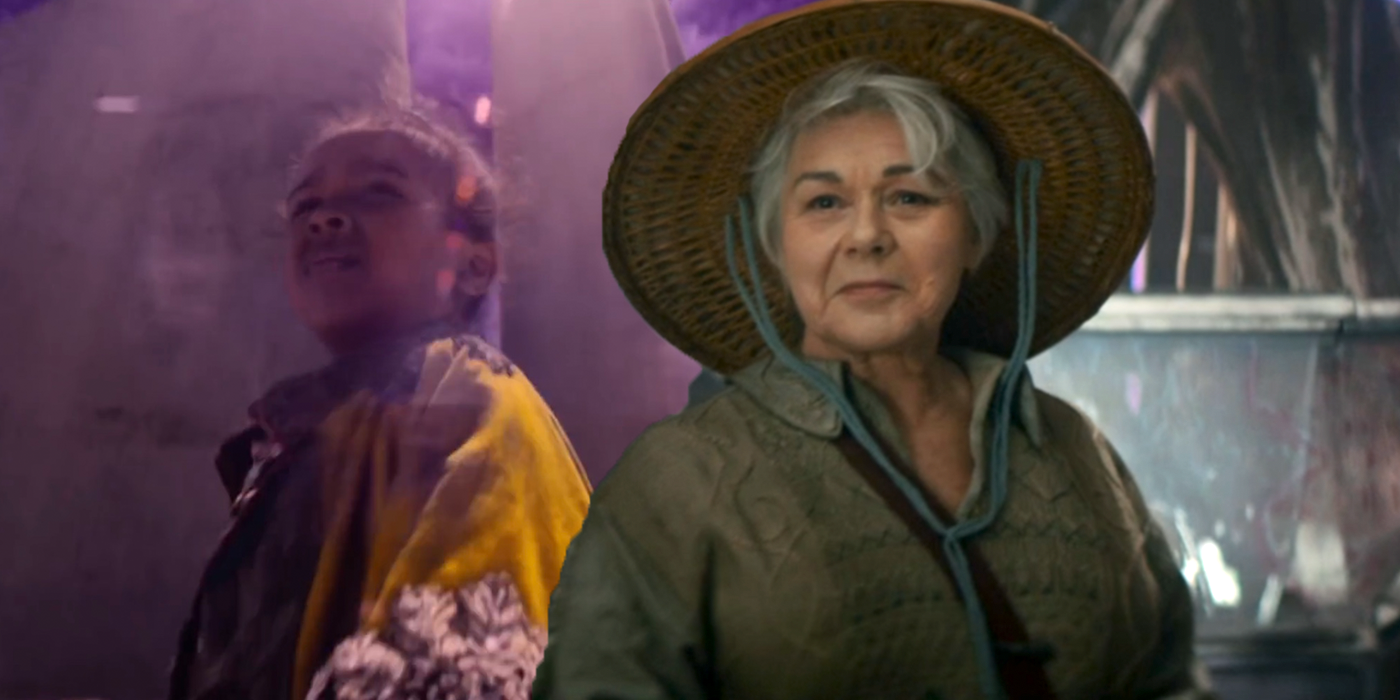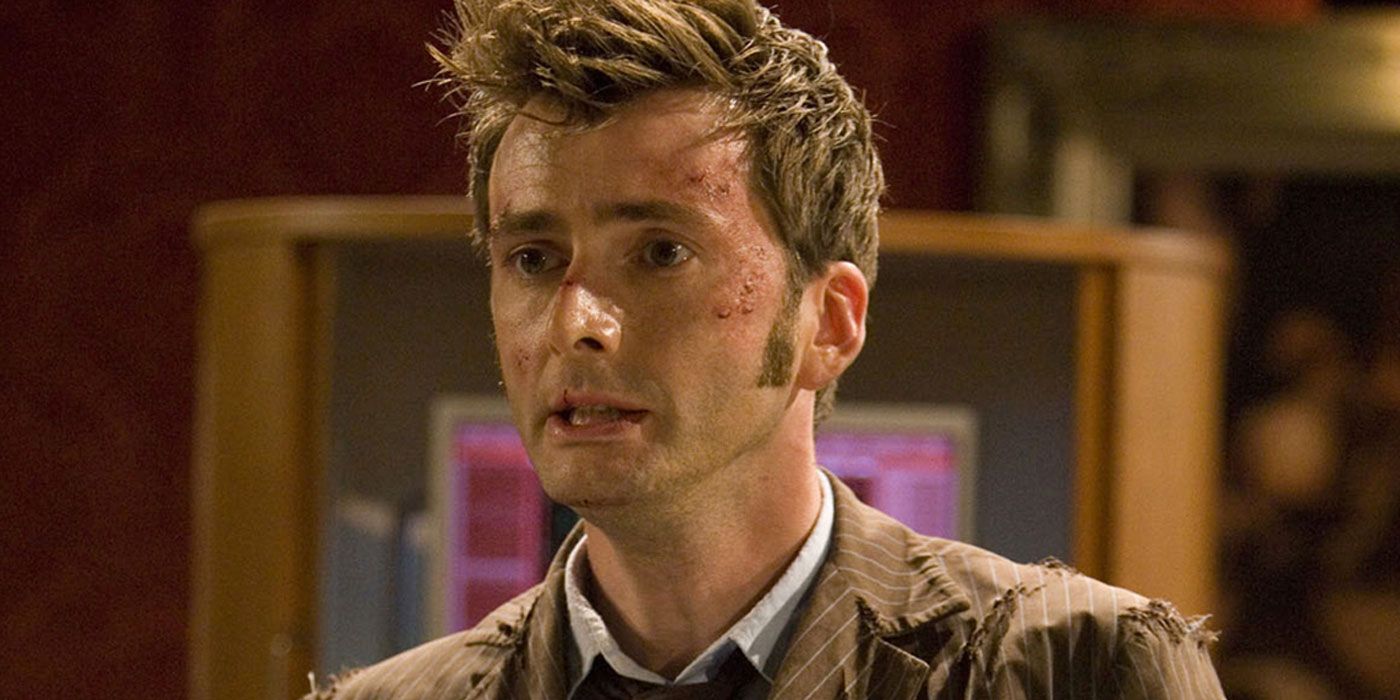Doctor Who: Flux is highlighting exactly why the BBC's sci-fi flagship needs Russell T. Davies back on showrunner duties for season 14. Having overseen two highly divisive seasons, Chris Chibnall announced his departure from Doctor Who to take effect following season 13's Flux storyline and a trio of specials. The BBC's centenary celebration episode in Fall 2022 will serve as Chibnall's swansong, after which he'll be replaced by the familiar visage of Russell T. Davies. Responsible for reviving Doctor Who in 2005 and masterminding the hugely popular Christopher Eccleston and David Tennant eras, Davies returns in time for Doctor Who's 60th anniversary special in November 2022, and beyond into season 14.
Before that, however, there's the small matter of Doctor Who: Flux. Picking up in the wake of season 12's landscape-shifting Timeless Child reveal, the universe is decimated by the calamitous Flux event and the liberation of old Doctor adversaries, Swarm and Azure. Jodie Whittaker discovers Division is behind everything, and must prevent the decimation of her universe whilst simultaneously searching for crucial answers about her own secret past.
Doctor Who: Flux has enjoyed a more positive reception compared to previous Chris Chibnall seasons, but while the most damning criticisms have subsided, not every unwanted Chibnall-ism has vanished. As Doctor Who: Flux gallops toward its finale, the cracks begin to widen, and the reason for Russell T. Davies' return becomes increasingly obvious.
Doctor Who: Flux Is Needlessly Complicated
There's no denying the scale and ambition of Doctor Who: Flux. Nothing from the classic or modern eras comes close in terms of expansive storytelling, while each new detail about Division and The Doctor's pre-Hartnell years leaves a giant footprint on Doctor Who continuity. It's interesting, then, that the season's standout episodes have been mostly standalone. "War of the Sontarans" and "Village of the Angels" touched upon the wider Flux narrative, but mostly employed Doctor Who's traditional episodic format, and both were widely praised. Only when Doctor Who: Flux has turned its attention toward more convoluted, universe-ending business has overall reaction soured somewhat.
Doctor Who: Flux's premiere ("The Halloween Apocalypse") dropped to a collective eyebrow raise after relentlessly hurling one storyline after another - some only a single out-of-context scene long - toward its audience. Chris Chibnall was obviously setting up events to come, but the result was a headache-inducing sprint that allowed no time to consider the questions Doctor Who: Flux was asking, because the next mystery was only ever seconds away. Though the pace has settled since that hectic opener, Doctor Who: Flux remains far too complicated for its own good, and "Survivors of the Flux" is a perfect example.
At long last, The Doctor reunites with Tecteun - now leader of The Division - and learns the answers to many of her biggest questions. The Doctor Who multiverse is mapped out, Division's endgame is confirmed, and more details surface regarding The Doctor's past. All are groundbreaking additions to Doctor Who canon... but all suffer noticeably from a lack of emotional impact. The entire sequence between Jodie Whittaker's Doctor and Barbara Flynn's Tecteun is pure, undiluted exposition, breathlessly delivered. Despite the best efforts of Whittaker and Flynn, the script's sheer density of information can't help but come across like a textbook recital, undermining what should be one of Doctor Who's most important conversations in 60 years.
This isn't a new problem for Chris Chibnall's Doctor Who either. The Timeless Child revelation of season 12 felt similarly hollow. Back then, it was The Master on info-dump duty instead of Tecteun, but The Doctor, incidentally, was making more or less the same baffled facial expression each time. In both cases, the burden of explaining a concept so devilishly complex stripped away any genuine emotion. All the viewer can do is desperately try to keep up.
Flux's Retcons Are Hurting Doctor Who
Doctor Who has been rewriting its own canon for as long as the TARDIS has been vworping, but while retcons are nothing new, Doctor Who: Flux is embarking on a personal crusade to cram as many as possible into its 6-episode run. The Timeless Child alone marks a massive shift in continuity, and none of the wrinkles created by season 12's finale have been resolved as of yet. Tecteun's explanation of Division's purpose represents another huge retcon, as she confirms the secret organization has been involved in shaping Doctor Who's universe from the shadows, influencing events and manipulating civilizations all this time without The Doctor (or the audience) knowing.
Doctor Who: Flux rewrites the origin of UNIT to include the Grand Serpent, and creates a Brigadier plot hole in the process. This could be a retroactive solve to Doctor Who's long-standing UNIT dating controversy (in which case, bravo Chibnall), but otherwise it's a bizarrely unnecessary reboot of Second Doctor-era history. There's also alterations to Weeping Angel mythology, as well as a complete do-over of how time works thanks to the introduction of the planet Time and its Mouri, through which the time force apparently flows.
Regardless of whether you believe Doctor Who: Flux is committing blasphemy by deconstructing the sacred texts, or maintain that storytelling should never be burdened by canon limitations, there's no denying Doctor Who's retcons are becoming too frequent, and increasingly risk distracting viewers from more important matters, like investing in the characters. As an example, audiences should be cheering The Doctor to solve the Timeless Child mystery because it's pivotal to her development. Instead, most viewers just can't wait to find out how everything matches up (or otherwise) to established canon. The Doctor's stake in the matter is taking a backseat to just getting some damn answers.
Why Russell T. Davies Can Solve Doctor Who: Flux's Problems
If complexity and continuity are the equations Doctor Who desperately needs to solve, Russell T. Davies is the man with the calculator. Nothing in Davies' original Doctor Who stint comes close to the complexity and grandeur of the Timeless Child and Division, but when big, bold concepts did happen - the Time War being the most obvious - they were prioritized staunchly underneath story and character. Christopher Eccleston's Ninth Doctor and David Tennant's Tenth became arguably the most clearly-defined versions of Doctor Who's hero in all 60 years of existence, while Rose Tyler and Donna Noble are widely considered among the TARDIS' companion elite.
The return of The Master in Doctor Who season 3 - one of Russell T. Davies' most ambitious storylines - is a prime example of why his touch is required for Doctor Who season 14. Never does the storyline dwell long on how The Master survived when every other Time Lord perished (seemingly), nor any other exposition-heavy revelation. Instead, everything orbits around The Doctor's emotional reaction to no longer being the last of his kind. It's the exact opposite approach to Thirteen and Tecteun in "Survivors of the Flux," which only manages to squeeze a few character moments among the Flux-like wave of exposition heading straight toward the viewer. After Doctor Who: Flux, season 14 is crying out for a back-to-basics philosophy that reestablishes characters as the priority, and Russell T. Davies is someone you'd expect to deliver exactly that, based on both his Doctor Who output and other projects such as It's A Sin and The Second Coming.
Considering he was charged with bringing Doctor Who back from the dead, Russell T. Davies' era is remarkably respectful of the past too. Any major revelations that did happen slotted neatly into existing mythology without the kind of hefty narrative remodeling we're seeing Chris Chibnall employ. Indeed, you'll find more Doctor Who retcons between season 12 finale "The Timeless Children" and Doctor Who: Flux's "The Vanquishers" than the entire Davies era combined. After a tumultuous few years that are culminating in the manic head-scratcher that is Doctor Who: Flux, that's the kind of stability season 14 desperately needs.




